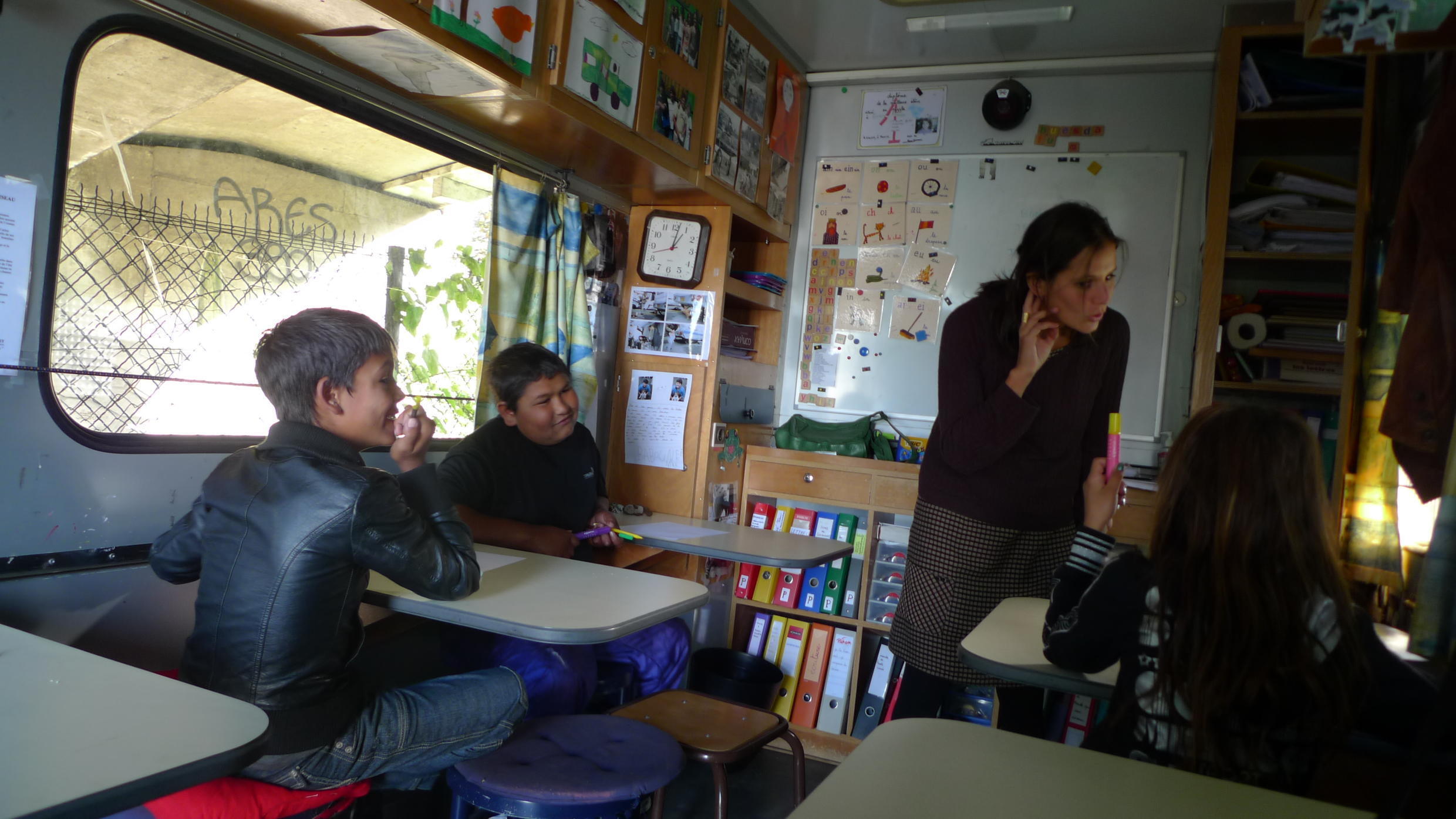France is pursuing a tough policy on Roma migrants, sending thousands back mainly to Romania. But their situation is complex.As European citizens they have freedom of movement within the continent and yet little access to employment; they’re thought of as travellers but would prefer to be sedentary, they’re seen as outsiders but many seek to integrate. It seems many Roma are caught between a rock and a hard place.

“Of course I’d prefer a flat, even a studio, with running water,” says 27-year old Corina, a single mother of two from Salonta in northern Romania.
She sits nervously on the edge of a mattress in her shack while her three-year old son runs around outside. It’s a sunny autumn day and her short-sleeved t-shirt shows her badly scarred arms.
“I was looking for food in a bin, but it was full of broken glass,” she explains.
Corina is one of around 70 Roma living on a squatter camp next to the ring road in St Denis, north of Paris. She’s been travelling between Romania and France for the last seven years and says she’d prefer to be back there.
“But it’s not possible. There’s nothing there for me. No work, no opportunities.”
She scrapes a living here, scavenging for food, begging and, like many Roma, looking for scrap metal to sell.
Corina has no skills but the situation isn’t any brighter for those that do. Florian, an experienced stonemason, has found little work here, even on the many building sites which rely on casual labour.
“There is work but people are worried about hiring us because we don’t have the right documents,” he says.
“I’d be happy to take him on” chips in Roberto Guerra, a French Roma who’s made good in the building trade, “but the system makes it hard”.
Guerra explains that he’d have to get Florian a work permit costing 970 Euros and it takes six months to obtain.
“In the current economic climate it’s difficult to make that undertaking, to see six months ahead.”
Guerra says the system “forces Roma work illegally”.
In a nutshell, if they can’t prove they have the financial means to live here, then once their tourist visa runs out they become illegals and can be sent back to their countries of origin.
Many Roma therefore have little choice but to beg, hiding out in makeshift squatter camps, forced to move on a regular basis.
“There are good and bad Roma, like anyone else,” explains Guerra, “but there are also so many clichés about them”. He cites the old chicken stealer stereotype and the idea Roma are natural nomads as examples.
“The reality is most Roma want to settle. And they have skills. Three quarters of the men have trades,” he adds.

Guerra has set up an association Amesamrroms (meaning “we are Roma”) to try and help Roma migrants get more stability. This is crucial if their children are to get the access to education they are entitled to.
At present, it’s rarely the case. According to Medecins du Monde out of the estimated 15,000 Roma migrants in France, more than a third are of school age. But only around 10 per cent attend school. It’s commonplace to say Roma migrant families aren’t interested in sending their kids to school.
“That’s not true,” says Julien Radenez, “it’s just that their priority is economic, not educational”.
Julien Radenez and Marine Danaux are primary school teachers with the department of French Education. Every day they drive their blue and green mobile classrooms (Camions-écoles) out to the northern Paris suburbs, in search of Roma migrants and French gypsies who can’t get to school.
“We try and give them the basics in reading and writing French, and in numeracy. The aim is to get them into mainstream school after,” explains Julien.
The kids - aged between six and 16 – are usually keen to come to the lorry, kitted out with tables, chairs, books and a white board. But their attendance is sporadic and can be broken up at any time, especially at the moment when makeshift camps are being dismantled.
“I’ve learned to live in the present,” says Marine, “you have to, you never know whether they will be there or not the next time”.
While it’s difficult to have exact figures, Julien estimates there are around 400 children of school age in the département (93) they cover, barely 10 per cent of whom are in school.
And while the aim of the mobile classroom is precisely to get them into school, he has no illusions about working miracles.
“We have just two lorries, we go to two camps a day, so that’s a maximum of 16 kids per day. There’s no way we can ever see them all.”

And even if they could, they wouldn’t all get places. He says while some city halls are very accommodating, others simply don’t want to enrol Roma kids and “make up excuses” about the need to provide proof of a permanent address. In such cases they can call upon a mediator and ultimately take the case to the HALDE – the French authority dealing with complaints over discrimination.
For Julien, the issue is ultimately one of social justice. “Roma don’t have a chance to settle. And the real reason for this is they’re poor.”
Daily newsletterReceive essential international news every morning
Subscribe